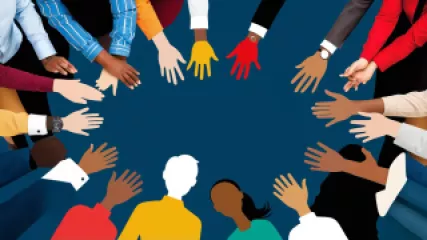Confronting Bias: A Practical Guide
Confronting Bias: A Practical Guide
Introduction:
Bias is an inherent part of being human. We all have our own biases, shaped by our experiences, beliefs, and societal influences. These biases can impact our thoughts, decisions, and interactions with others. Recognizing and confronting bias is essential for personal growth, fostering inclusive environments, and promoting fairness and equality.
In this practical guide, we will explore the different types of bias, their effects, and most importantly, how to confront and manage bias in our daily lives. By understanding and addressing bias, we can strive towards a more just and inclusive society.
Section 1: Understanding Bias
Bias exists in various forms, from unconscious biases that influence our behavior without our awareness, to explicit biases that are consciously held. Here are some common types of bias:
- Stereotyping: Stereotypes are oversimplified generalizations or assumptions about a particular group of people. They can lead to unfair judgments and treatment based on preconceived notions.
- Confirmation bias: This bias occurs when we seek out information that confirms our existing beliefs and dismiss or ignore contradictory evidence. It can hinder our ability to consider alternative perspectives.
- Implicit bias: Implicit biases are unconscious associations and attitudes towards certain groups of people. These biases can affect our decision-making processes without us realizing it.
- Availability bias: The availability bias refers to our tendency to rely on readily available information when making judgments or decisions. This can lead to overlooking important, less accessible information.
Understanding these biases is crucial for recognizing them in ourselves and others. By acknowledging their existence, we can take steps to confront and overcome them.
Section 2: Recognizing Bias
Recognizing bias requires self-reflection, openness, and a willingness to challenge our own assumptions. Here are some strategies to help identify biases:
- Self-reflection: Take the time to reflect on your own beliefs and attitudes. Consider the possibility that you may hold biases, even if unintentional.
- Listen to others: Actively listen to diverse perspectives and experiences. Engage in meaningful conversations with individuals from different backgrounds to gain new insights and challenge your own biases.
- Question your assumptions: When forming opinions or making decisions, question the underlying assumptions and examine whether they are based on facts or influenced by bias.
- Seek feedback: Ask trusted friends, colleagues, or mentors for feedback on your behavior and potential biases. Their perspectives can provide valuable insights.
Recognizing bias is an ongoing process that requires continuous self-awareness and a commitment to personal growth.
Section 3: Confronting Bias
Confronting bias involves actively challenging and addressing biases when they arise. Here are practical steps to confront bias:
- Educate yourself: Learn about different cultures, perspectives, and histories. Read books, watch documentaries, and engage in meaningful discussions to broaden your understanding.
- Challenge stereotypes: Be aware of the stereotypes you hold and actively challenge them. Avoid making assumptions about individuals based on their race, gender, religion, or any other characteristic.
- Practice empathy: Put yourself in others' shoes and try to understand their experiences and perspectives. Empathy can help break down barriers and foster understanding.
- Interrupt bias: When you witness bias, whether it's in a conversation, workplace, or any other setting, speak up and address it respectfully. By doing so, you create a more inclusive environment.
- Engage in self-correction: If you catch yourself acting on bias, acknowledge it, apologize if necessary, and make a conscious effort to change your behavior in the future.
Confronting bias is not always easy, but it is crucial for personal growth and creating a more inclusive society.
Section 4: Managing Bias
While it may be impossible to completely eliminate bias, there are strategies to manage bias effectively:
- Seek diverse perspectives: Surround yourself with individuals from different backgrounds and actively seek out their perspectives. This can help broaden your own worldview and challenge biases.
- Implement bias training: Organizations can provide bias training programs to educate employees about different types of bias, their effects, and strategies for managing bias in the workplace.
- Establish inclusive policies: Create policies and procedures that promote diversity, equity, and inclusion within organizations. This includes fair hiring practices, equal opportunities for advancement, and fostering a culture of respect.
- Encourage open dialogue: Create an environment where individuals feel comfortable discussing bias and its impact. Encourage respectful conversations and active listening.
- Hold yourself accountable: Regularly assess your own biases and take responsibility for addressing them. Hold yourself accountable for creating an inclusive and bias-free environment.
By actively managing bias, we can work towards a more equitable and inclusive society.
Section 5: Conclusion
Confronting bias is an ongoing journey that requires self-awareness, education, and a commitment to change. By understanding the different types of bias, recognizing our own biases, and taking practical steps to confront and manage bias, we can create a more inclusive and fair society.
Remember, bias exploration is a continuous process, and it requires effort and dedication. As individuals, we have the power to make a difference by challenging our biases and fostering environments that celebrate diversity and promote equality.
“In a world where everyone is biased, the true measure of one's character is how they confront and manage their biases.”
- Edmund Parker






